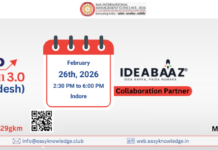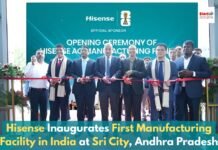New Delhi, Delhi, India | 11th February 2020: Boston Scientific, a global medical device company, with its continued commitment towards advance therapy adoption in interventional cardiology for treating Complex and High-Risk Coronary Intervention (CHIP) patients, collaborated with a leading interventional Cardiologist Dr. Masahisa Yamane, Director of Cardiovascular Division, Sekishinkai Saitama Hospital, Saitama to proctor a set of coronary intervention workshops in India.
Keeping in line with the mission to transform patient lives, Boston Scientific is regularly striving to adopt newer and advanced treatment mechanisms that improve the health of patients around the world. To take this endeavor forward Boston Scientific and Dr. Masahisa Yamane from Japan came together and organized workshops across India including Delhi, Lucknow, Hyderabad, Ahmedabad, and Patna from 3rd – 7th February 2020. The focus was to create a knowledge sharing platform for Interventional Cardiologists to discuss and develop expertise in adoption of latest technologies for complex and high – risk angioplasties.
Eminent cardiologists of the Apollo hospital, Hyderabad, Max Hospital, Shalimar Bagh, Delhi and Medica Magadh Hospital, Patna participated in the workshop that witnessed complex high-risk angioplasties, using advanced technologies like Intravascular Ultrasound (IVUS) and Rotational Atherectomy, that are now providing the physician with critical information about the diseased area and aiding in selection of optimal treatment methods for treating artery blockages and coronary complexities.
Dr. Naveen Bhamri, Director and Head of Department, Cardiology – Max Hospital, Shalimar Bagh said, ’’We are extremely happy to collaborate with Boston Scientific and the international faculty for this workshop. The cardiology scenario is witnessing a paradigm shift in treatment mechanisms and technologies. Cases related to chronic total occlusion of coronary arteries, and calcification of the blood vessels is on the rise and so ongoing innovation in medical technology may enables physicians to provide better treatment and improve quality of life for patients with cardiovascular diseases.”
Usage of such advanced technologies may provide better outcomes in the long term for patients, thereby improving the quality of life.
Dr. Prabhat Kumar, Cardiologist, Medica Magadh Hospital, Patna said, “We are happy to collaborate with Boston Scientific. For elderly patients who cannot undergo bypass surgery, rotablation procedure comes to the rescue. In this process, a tiny drill powered by compressed air is used to chip away calcium deposits. Once this is done, a balloon angioplasty is carried, and one or more stents are implanted. 85 percent heart problems can be prevented by following a healthy and physically active lifestyle. In order to achieve this, one should avoid smoking, maintain a healthy weight, limit or avoid alcohol, reduce stress, less intake of fatty food and calcium, control blood pressure, sugar and cholesterol level.”
Technology is paving the way for an improved medical treatment to help people suffering from cardiovascular diseases (CVD). According to WHO, an estimated 17.9 million people died from CVD in 2016, representing 31 percent of all global deaths. Out of the 17 million premature deaths, under the age of 70, 37 percent were caused by CVDs *.
Mr. Manoj Madhavan, Managing Director, Boston Scientific said,“We at Boston Scientific are happy to conduct such workshops which are dedicated to transforming lives through innovative medical solutions that improve the health of patients around the world. Collaborative workshops like these conducted on latest technological advancements in the Interventional Cardiological space would enable a platform for our doctors in India to discuss how technology has aided the journey of CVD treatments, with next generation stents and therapies like Intravascular Ultrasound and Rotational Atherectomy as frontrunners that may aid in treatment of artery blockages and other coronary complexities.”






